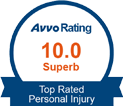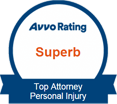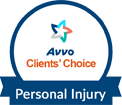Many car accidents are capable of inflicting severe physical injuries that can be life-changing to those involved. Aside from suffering physical injuries to your body, a victim can suffer from long-time psychological suffering that will require prolonged counseling. Damage to the car and other cars that may be involved in the accident also happens. The costs for the loss of property and medical treatment can be overwhelming to the victim and their family. When you have been involved in a car accident, you will be entitled to financial compensation for the damages. Talking to a personal injury lawyer is an excellent first step to ensure you get the compensation you deserve. Get in touch with us at The Personal Injury Attorney Law Firm, and we will help you get the compensation due to you.
What One Must Do Immediately Following an Accident
Following the aftermath of an accident, time is precious. To be able to protect your rights to compensation and ensure sufficient recovery, the victim of an accident must do certain things with urgency:
- Seeking medical attention is one of the crucial things to do, even when a person feels fine. Sometimes a person can suffer from internal injuries that are not obvious to the physical eye. These injuries can take a few days for the victim to realize they sustained them. Your insurance provider will always ask if a medical doctor has examined you. If you neglect to do this or take a long time doing it, doing it later may be to your disadvantage.
- As soon as one can, it is essential to file a claim with your insurance provider. This is what is termed as the first-party claim. Additionally, you will need to hire the services of a personal injury lawyer to help you with seeking compensation. Through your lawyer, you will need to get in touch with the insurance company of the other driver. When you wait for an extended period before filing a claim can increase the chances of it being denied.
Apart from the physical injuries a victim sustains, it is difficult to measure the emotional stress and suffering you may undergo. After an accident, one may suffer injuries that may cause you to miss work, and as a result, loss of wages. Your car can also get damaged, needing a lot of money to repair it or to replace it altogether.
Your injuries can also confine you to suffer pain for an extended period of time, with your daily routine interrupted. Sometimes through an accident, a victim may lose a limb, use of particular body parts, or end up suffering traumatic injuries that last a lifetime. Because of the consequences of the accident, a victim can suffer emotional damages that will require therapy.
The costs of all these damages are hefty, making it necessary for a person to have insurance coverage. The state has made it illegal for a vehicle owner to be without insurance that helps recover damages, especially when an accident happens.
Car Insurance Coverage
The law in California requires any car bought and registered to be covered through the showing of monetary responsibility. This is easily done by buying an insurance policy for your car as the registered owner.
There are minimum requirements for insurance coverage in California. These requirements are contained in the insurance code of California 11580.1b. This cover is for the purpose of ensuring every cost incurred due to the accident is covered in full. According to VEH 16056, the law requires each driver to have 15/30/5 as minimum coverage for the vehicle. This coverage includes:
- Coverage for death or injuries to a single person of $15,000
- Coverage of $30,000 for death or injuries involving several people
- Property damage cover of $5,000
Every driver is expected to always have with them proof of an insurance cover at hand. The law expects a driver to give proof of cover when:
- A law enforcement officer requests for it
- A vehicle owner wants to renew the registration of their vehicle
- An accident happens involving the driver
When a driver fails to show proof of their monetary responsibility, it may result in his paying fines. Additionally, the driver may face the probable revocation of their driver’s license.
Uninsured and Underinsured Motorist Coverage
Legally, the provider for your vehicle insurance is expected to offer the vehicle owner coverage for underinsured and uninsured motorists. This is found in the insurance code of California 11580.2. The purpose of this coverage is to help a vehicle owner cover for their injuries and any other costs if they get into an accident with a motorist holding an invalid insurance cover.
When a person has uninsured motorist cover, they are covered for any damage they or passengers in their car sustain. This applies when they get into an accident with an uninsured driver. It is essential to understand that the compensation one receives tied to their liability coverage.
On the other hand, having underinsured motorist coverage is also essential for any driver. In the event of a car crash with a motorist whose insurance is not sufficient to cover for all the damages, the policy helps. The policy usually works to cover the difference between the other motorist’s cover and the actual cost of damages.
A victim of an accident can also recover damages to their vehicle or compensation for it if they had taken a specific policy on physical damage coverage. This particular cover only works to compensate one for damages suffered on their vehicle and not on themselves or passengers.
It is essential to understand that this is not a legal requirement for a driver to have these policies.
Other Important Car Insurance Covers
While legally, the law only expects a driver to have a 5/30/5 cover, it is prudent for a driver to think of having other policies that supplement the main policy. In most cases, the legal minimum coverage requirement may not be able to cover the costs for all the damages and injuries sufficiently. If you are found to be at fault in causing an accident, the victims may sue you for compensation. When your coverage is not sufficient, the victims may opt to go for your personal properties to get fully compensated.
To avoid this, one may consider buying the below kinds of insurance covers to ensure full coverage for any person involved in the accident. These covers include:
- Comprehensive coverage
- Theft coverage
- Medical payments coverage and
- Collision coverage.
Fundamentally, one should understand that having these policies does not excuse a driver from having the minimum requirement by the state of 15/30/5. However, having them will help you in case you find yourself in a significant car accident that demands hefty compensation.
Other Ways to Show Monetary Responsibility
Buying the minimally accepted insurance cover for your vehicle is the most basic way of showing financial responsibility. However, according to VEH 16002, there are other ways a driver can show monetary responsibility for their vehicle. Some of the alternatives acceptable by the state are:
- A vehicle owner depositing $35,000 with the DMV
- The driver or vehicle owner holding a self-insurance certificate from the DMV
- Holding a bond of surety for not less than $35,000 given by an authorized company doing business within the state.
Requirements for Reporting an Accident
According to VEH 1600, any person involved in a car crash that may result in damages to property in excess of $1,000, or/and personal injury, they are legally expected to report the accident. The law requires the accident to be reported within ten days of it happening to the DMV. The reporting can be done by yourself, your lawyer, or the insurance provider you use.
Form SR-1
Reporting an accident requires filing a form SR-1. This form includes the name or names of the accident victims that are complaining of sustaining bodily injury. Their addresses are also a requirement and must equally be filled in the form. Other conditions to be filled in the form include:
- The location, date and time the accident happened
- Personal details for other drivers involved such as their names, birth dates, addresses, and their driver license details
- Your details
- Details for the insurance providers for all the drivers involved in the crash, such as the name of the provider, the policy number and its expiration
- A detailed explanation of the injuries sustained by all those involved.
Relevant Obligations You Should Take Following an Accident.
As earlier discussed, the most crucial thing is to seek medical attention after an accident. If a victim is conscious, calling for assistance by dialing 911 is essential. One needs to get the necessary first aid as well as the police to arrive at the scene. When you are able and to help with your claim, you need the following details from the other driver and give them to your lawyers and necessary authorities:
- Full names of the other driver or drivers
- The addresses for the other driver/s in the accident
- Their telephone contacts
- Their valid driver’s license numbers
- The vehicle license plate number as well as the vehicle identification number
- The insurance provider details for the other driver
If you notice a witness to the accident, it is essential to get their details as well should there be a need to contact them later. Documenting the scene of the crash is very important for seeking compensation. Most people have with them smartphones that one can use to take photos of:
- The scene of the car crash
- Photos detailing damage to the vehicles
- Photos of traffic controls if any
- Pictures of any visual obstacles noticed
- Pictures of damaged properties on the roadway
- Any signs in the vicinity that may be necessary.
Taking the photos from various angles is vital in determining the person responsible for the crash. Ensure you give your lawyer these photos as they are essential in ensuring you get your rightful claim. The images can also be used in case of a trial as evidence.
Driver’s Obligations While Joining a Highway
Statistics indicate that many accidents involving motorists are due to drivers that fail to yield well when joining and exiting from highways. Every driver is expected to understand what their duties and obligations are to other drivers and road users. The preemption doctrine of California requires any driver joining a highway to give way to oncoming traffic and apply caution as necessary.
Any driver wishing to join the main road from a private or public road, driveway, or parking lot must give way to pedestrians and oncoming vehicles. When the driver is satisfied, there is time to join the highway while causing no disruptions, and they may then turn in and join. When a driver begins to join the road, other motorists on the road should yield a way to avoid any accidents from happening. This is according to VEH 21800.
A driver that wishes to move across a road or highway coming from a private or public driveway at a place not marked as an intersection must give way to pedestrians and other motorists. Again, after establishing that it is safe to cross the highway, they should do so, and the other vehicles should yield to avoid an accident. This is also well articulated in VEH 21800.
The Statute of Limitations for Car Accidents
The state of California limits the time when a victim of a car crash can legally file a compensation claim for any damages. The time allowed, however, is dependent on the kind of damage sustained in the accident.
Individuals that suffer from property damage are typically given three years to file a claim. This period is calculated from the moment the accident occurred. The details of this requirement are outlined in the civil code of California 338.
Victims that sustain injuries to their bodies are given two years to institute a claim. This period is also calculated from the period the accident happened. The details of this are outlined in the civil code of California 335.1.
Can One Extend the Limitations Statute?
The law allows for various times when an extension of the limitations statute may be allowed. An extension can only be permitted when:
- There has been a delay in discovering an accident-related injury, and the delay is legitimate. This is outlined in the civil code of California 338.
- The person identified as responsible cannot be traced. This is found in the civil code of California 351
- The person at fault is serving a jail sentence according to the civil code of California 352.1
- The alleged victim of the accident was disabled or a minor when the accident happened according to the civil code of California 352.
Instituting Claims against the Government
Victims in a car crash that believe the state, local city, or county is liable for the accident can seek compensation from them. However, the victim is required to institute these claims to the government in 180 days. These days are counted from the date of the crash. The details on how and when to file the claim are outlined in the Government Code of California 911.2.
Liability Laws for a Car Accident in California
Comparative Fault
The principle of comparative fault is adhered to by California. This principle of the comparative fault has two meanings:
- Several people can be held accountable financially for injuries or damages suffered in a crash and
- Alleged victims of an accident are not prohibited from getting compensation even when they contributed to the accident.
The comparative fault law allows every accident victim to get compensated. This is, however, only when the victim is not entirely at fault for the accident causing the damage. This is important because it helps every victim to recover a certain percentage of damages they suffered following an accident.
Fault Apportionment
When it is established that the person at fault is more than one for the accident, each person will then be held liable for the financial damages. This is outlined in the civil code of California 1431.2. The code further states that a victim that is found responsible for causing their own accident or injuries, their possibility of recovering compensation is reduced.
For instance, David and John can get involved in a collision that leads to various damages. David was driving while texting while John ran a stop sign, and none of them was mindful on the road resulting in the collision. Because of their negligence or recklessness, they both suffered damages totaling $100,000. Each party, in this case, is responsible for a fraction of the damages suffered. Each one of them will be apportioned a certain percentage of damages according to their degree of fault.
If John is found to be 80% at fault, he will be expected to pay 80% of the damages incurred by John. On the other hand, John will be required to pay for 20% of the damages suffered by David.
Available Damages to Victims of Vehicle Accident
According to the law on personal injury in California, victims that suffer injuries in a car accident have a right to compensation. The damages that are legally compensated for can be either non-economic or economic ones.
As discussed in the civil code of California 1431.2(b)(1), economic damages are those that can be quantified in monetary value. These kinds of damages include:
- Medical costs incurred by the victim
- Lost earnings for the period a person will miss work as they recover
- Lost employment or opportunities especially when the victims are unable to work for prolonged periods
- Lost use of the property that has been destroyed
- The cost of repairing or replacing the damaged property
- Burial costs in the event of fatalities.
According to the civil code of California 1431.2(b)(2), non-economic damages are those damages not easily quantifiable in monetary terms. Some of the damages a victim of a car accident can seek compensation for include:
- Both the physical pain and suffering the victim will go through
- The mental anguish and psychological suffering faced by the victim
- Lost companionship and consortium to a surviving family or spouse in case of a fatality
- The inconvenience a person may suffer due to lifelong injuries
- Injury to the reputation of the victim as well as the humiliation they suffer.
What Happens in the Event the Other Driver is Uninsured or Underinsured.
Ideally, the law expects each driver in California to have motor vehicle insurance coverage. Driving a car that is not insured is against the law, and if found, the vehicle owner can be prosecuted for the violation. However, in case you find yourself involved in an accident with a driver that is not insured, you can still file a compensation claim. The at-fault driver is still liable to compensate you for the damages on a personal level.
When the accident happens, you must retain a personal injury attorney to institute a lawsuit that would help you recover financially from the assets belonging to the driver. This, however, is only possible when the driver has assets that can be used to compensate you.
However, if you have coverage, your insurance provider should be able to pay for your medical costs and coverage for the collision. As earlier discussed, to avoid losing on your compensation, one may consider getting coverage for underinsured or uninsured motorists.
However, depending on the particular accident, other avenues to get compensation may be available with the guidance of your injury lawyer. Your experienced lawyer can help you the entire amount owed to you when an accident occurs.
Limitations in Recovering Damages
According to the civil code of California 333.4, the law prohibits a person from seeking non-economic compensation in particular situations. A driver or a victim is not allowed to recover damages for mental distress, suffering and pain or any other injuries if:
- They have no insurance coverage for their vehicle or any way of satisfying the financial responsibility as required by the state or
- Found guilty of a DUI offense and convicted for it according to VEH 23152/23153.
Finding a Personal Injury Lawyer Near Me
Damages following a vehicle accident can be devastating to the victim and their family. Apart from personal suffering, the financial burden can be too much to bear. You need to seek compensation for damages you would sustain following an accident. Without an experienced lawyer, a victim can fail in getting the compensation they deserve. At The Personal Injury Attorney Law Firm, we are committed and experienced to ensure our clients reach their rightful compensation. Call us today at 619-625-8707 for a consultation and an appointment with us.
 800-492-6718
800-492-6718







